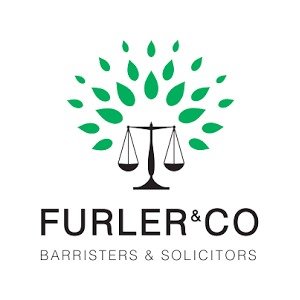Best Child Abuse Lawyers in Clare
Share your needs with us, get contacted by law firms.
Free. Takes 2 min.
Free Guide to Hiring a Family Lawyer
List of the best lawyers in Clare, Australia
About Child Abuse Law in Clare, Australia
Child abuse is a grave offense in Clare, Australia, and involves physical, sexual or emotional mistreatment, as well as neglect of a child. Australian law prioritises the safety of children and has strict legislation to protect them against abuse. Severe penalties are imposed on those found violating these laws, including prison terms, fines, and restrictions. Child Protection Act 1993 is a significant law dedicated to safeguarding children from any form of harm.
Why You May Need a Lawyer
Dealing with child abuse issues can be emotionally draining and legally complex. You may need a lawyer if you're a victim seeking justice, a guardian striving to protect a child, or someone falsely accused of child abuse. Lawyers can help you navigate the intricate legal system, protect your rights, or present evidence effectively if you are unfairly implicated. Furthermore, an attorney can guide you to navigate challenging areas like restraining orders, custody battles, or mandatory reporting requirements.
Local Laws Overview
The Child Protection Act 1993 in South Australia covers various forms of child abuse, including areas such as maltreatment, neglect, emotional abuse, physical abuse, and sexual exploitation. The Act includes stringent reporting obligations for people working with children, requiring the individuals to report if they suspect a child is or may be at risk. Additionally, based on the severity of the offense, the law has provisions for extensive sentences and fines.
Frequently Asked Questions
What constitutes child abuse in Clare, Australia?
Child abuse constitutes any behaviour that harms a child. It can be physical, emotional, sexual abuse, or neglect of a child's basic needs or rights. It also includes exposure to domestic violence.
What is the process for reporting child abuse?
If you suspect a child is being abused or at risk, you should report it to the Department for Child Protection. Reports can be made anonymously, and legal obligations require certain professionals to report suspicions of child abuse.
What happens after a claim of child abuse is reported?
Once a claim is reported, the Department for Child Protection launches an investigation. If substantial evidence is found, appropriate legal actions are initiated, which can include court proceedings, foster care, and counseling.
Can I be sued for false reporting?
As long as a report is made in good faith, protections are in place against civil or criminal legal action. However, intentionally making a false report is an offense punishable by law.
What kind of lawyer should I consult for child abuse cases?
You should consult a Family Law attorney who specializes in child abuse cases. They will have the appropriate knowledge and experience to provide suitable advice and representation.
Additional Resources
Additional resources like the Child and Family Services Information Exchange, Department for Child Protection, and Child Abuse Prevention Services can be helpful. Furthermore, resources such as the Australian Institute of Family Studies and the National Child Protection Clearinghouse provide research, support, and policy advice on child abuse.
Next Steps
If you need legal assistance related to child abuse, start by consulting a reputable Family Law attorney who specializes in child abuse cases. They can help you understand the complexities of your situation and navigate you legally. You might also consider seeking emotional support from counselling or support groups. Remember, your goal is to ensure the child's best interest and safety, and there are laws and resources available to ensure this is possible.
Lawzana helps you find the best lawyers and law firms in Clare through a curated and pre-screened list of qualified legal professionals. Our platform offers rankings and detailed profiles of attorneys and law firms, allowing you to compare based on practice areas, including Child Abuse, experience, and client feedback.
Each profile includes a description of the firm's areas of practice, client reviews, team members and partners, year of establishment, spoken languages, office locations, contact information, social media presence, and any published articles or resources. Most firms on our platform speak English and are experienced in both local and international legal matters.
Get a quote from top-rated law firms in Clare, Australia — quickly, securely, and without unnecessary hassle.
Disclaimer:
The information provided on this page is for general informational purposes only and does not constitute legal advice. While we strive to ensure the accuracy and relevance of the content, legal information may change over time, and interpretations of the law can vary. You should always consult with a qualified legal professional for advice specific to your situation.
We disclaim all liability for actions taken or not taken based on the content of this page. If you believe any information is incorrect or outdated, please contact us, and we will review and update it where appropriate.








